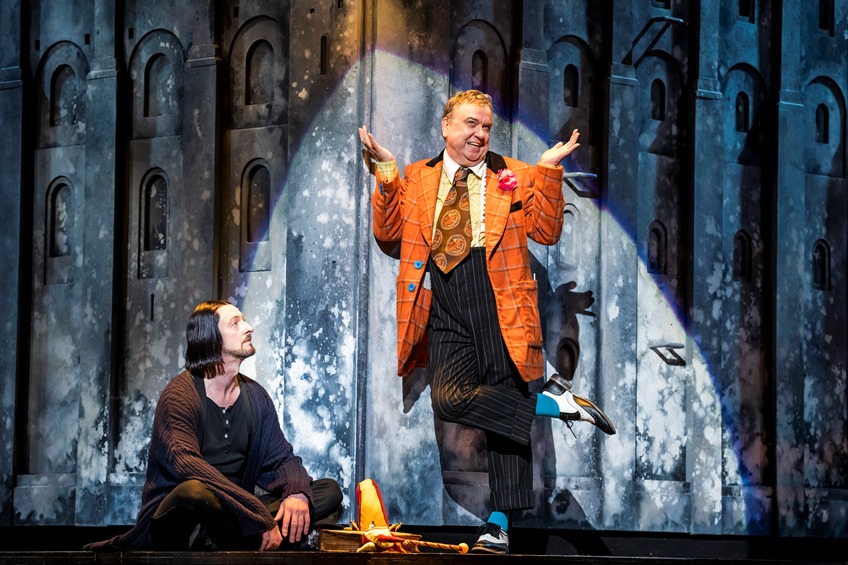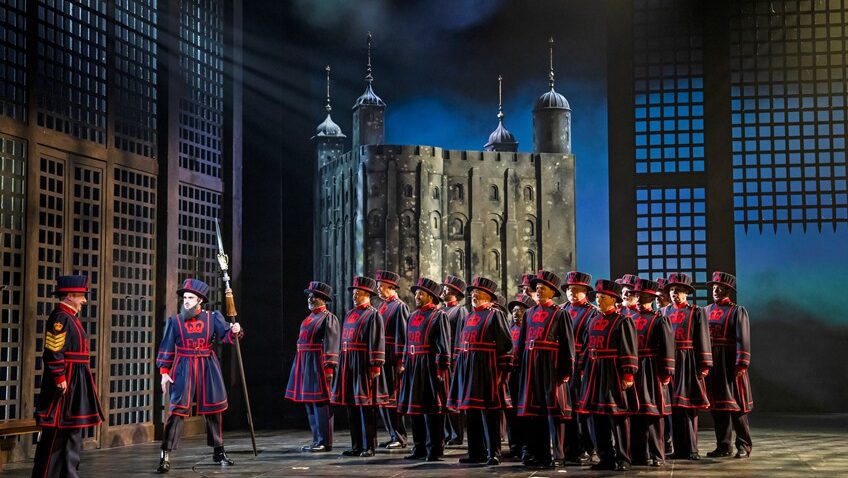Gilbert and Sullivan’s The Yeomen of the Guard premiered with great success in 1888, the year of Queen Victoria’s Golden Jubilee when the nation was being very patriotic and nostalgic for Ye Olde England. The opera is set in Tudor Times.
The opera is very different from the rest of the G&S oeuvre. There is much less topsy-turvydom and it is their only work to end unhappily. It pertains to be serious, at least the music does; but the story-line and much of the dialogue are difficult to take seriously.
Sullivan, who had longed to write an epic British opera, always said The Yeomen of the Guard was his favourite of their works. Gilbert thought it was the best thing they had done, a sentiment not shared by many Savoyards today.
Jo Davies had her doubts about accepting ENO’s offer to direct this revival, since she was not an avid, paid-up G&S fan. She admits she had to read the text four times before she fully understood what was going on.

The opera, conducted by Chris Hopkins, has been updated to Queen Elizabeth II’s coronation in 1953. Old newsreels are projected during the overture, much to the annoyance of those who want to listen to the music.
The updating doesn’t do anything for the opera. The dialogue is still stilted and some of the singing is underpowered. The most arresting scene visually is the opening of the second act with a revolving Tower of London surrounded by a chorus of policewomen.
Jack Point (Richard McCabe), a street entertainer, says he is “a salaried wit and there is in nature nothing more ridiculous than that.” He is in love with Elsie (lively Alexandra Oomens), another street entertainer, but she falls in love with an imprisoned soldier, Colonel Fairfax (Anthony Gregory), who is about to be executed.
Jack Point is a direct descendent of the medieval court clown, a direct crib of Shakespeare and Touchstone in As You Like It and Feste in Twelfth Night. Gilbert couldn’t make up his mind whether Jack lived or died of grief at the end – there were two versions – and he left the audience up in the air to decide for themselves. McCabe works hard and struggles to make him either funny or pathetic.
John Molloy is an amusing goaler. I also much enjoyed the three tap-dancing guardsmen (wearing bushbys) and only wished they had been given more to do.
To learn more about Robert Tanitch and his reviews, click here to go to his website 




